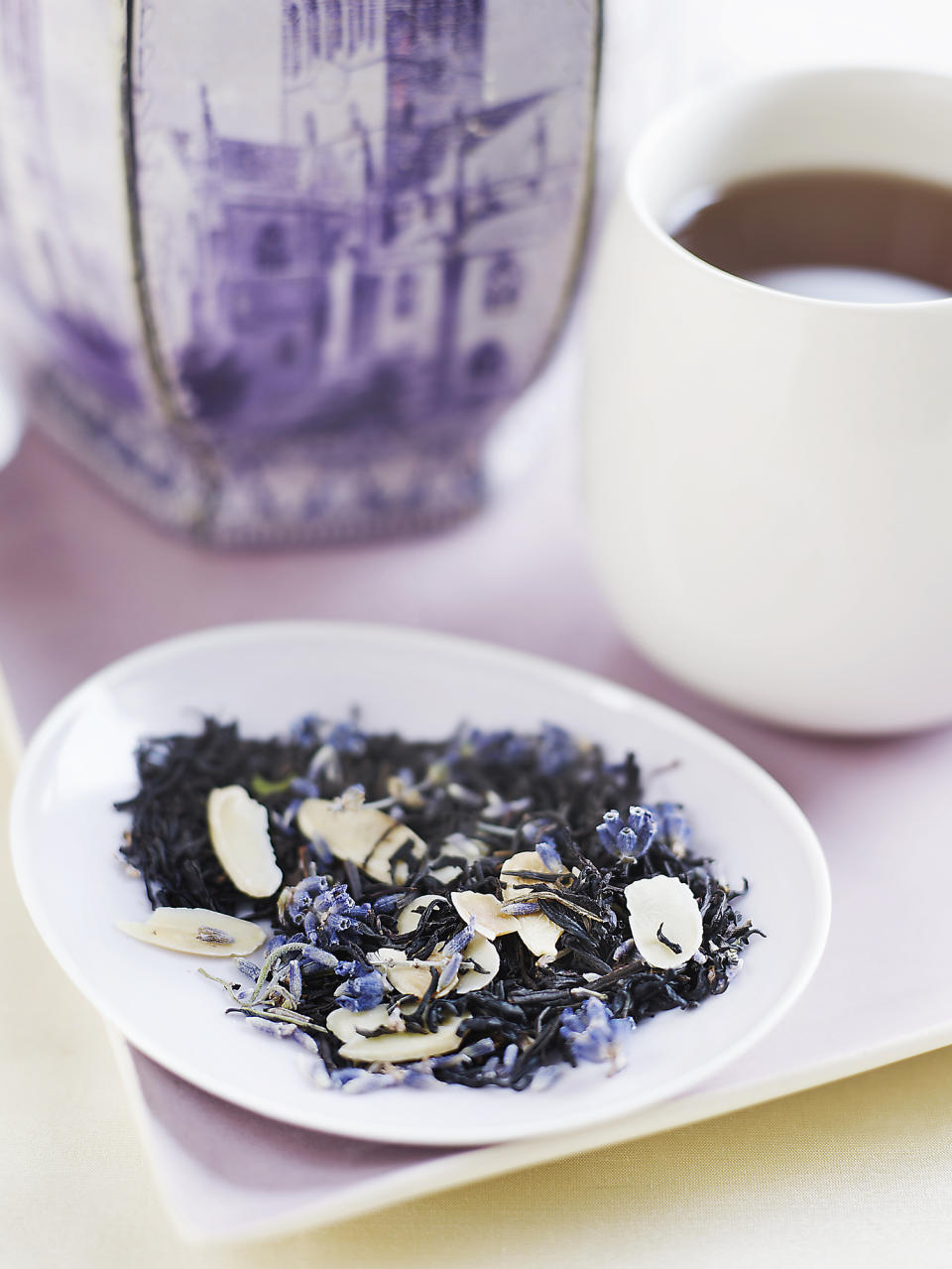Here's Why You Might Want to Skip That Viral Lavender Lemonade Recipe

Some people struggle with headaches. Others feel plagued with high levels of anxiety. Then there's that unfortunate group hit with the double whammy of both. But there's a trendy remedy that claims to cure the two birds with one stone: lavender lemonade or tea, made with either dried lavender or a drop of lavender oil.
According to the Anxiety and Depression Association of America, headaches and anxiety actually go hand-in-hand. If you have general anxiety disorder or a panic disorder, you're also likely to suffer from headaches. When we're anxious, our muscles contract or spasm. So when you're dealing with ongoing anxiety, your muscles are continuously in a tightened state, resulting in stress-related headaches.
While there are many forms of treatment available for both anxiety and headaches, ranging from prescription medications to acupuncture and everything in between, people have been using lavender for thousands of years.

"Lavender oil was one of the most widely used oils during ancient times," says clinical nutritionist and doctor of natural medicine Josh Axe. "The Egyptians used it for mummifications and as a perfume, while the Romans used it for bathing, cooking, and scenting the air. There is even some speculation that lavender oil is what Mary used to anoint Jesus' feet in the twelfth chapter of John in the Bible."
But what makes lavender so useful in relation to headaches and anxiety specifically is that it provides a "similar effect as pharmaceutical relaxants known as benzodiazepines," says Isha Gupta, M.D., a neurologist with IGEA Brain and Spine in Union, New Jersey. Although Dr. Gupta says "more research is needed in this area," some research has already found promising results.
For instance, a 2013 metastudy published in the journal Evidence-Based Complementary and Alternative Medicine analyzed a few different studies involving lavender oil for anxiety. Based on the studies reviewed, researchers concluded that "lavender was superior to placebo" and provided benefits for many anxiety-related symptoms such as restlessness, poor sleep, pain, and fatigue, ultimately improving quality of life for people suffering from anxiety.
But is lavender safe for ingestion?
It's interesting to note that every study assessed in this particular paper involved ingesting the lavender orally, an issue that has been debated in science as well as in forums across the internet. This leaves many headache and anxiety sufferers wondering: Is it safe to swallow lavender? What about lavender oil?
"It is unclear if lavender oil is safe for oral ingestion, and [if it is] in what amount," says Dr. Gupta.
David Nico, Ph.D., also known as "Dr. Healthnut," agrees. "According to the FDA, lavender oil is approved for oral consumption as a supplement," he says. (You can check for yourself here.) "However, there is controversy, as some oils are for external use only. I would caution oral consumption with a large amount of highly concentrated lavender oil."
Fortunately, you don't have to risk your safety in order to see firsthand whether this natural remedy works for you. Other, less risky options do exist, says Nico, explaining that lavender tea is one of them.

How to make a soothing lavender tea
Kelly Zajac, owner of Tudor House Tea & Spice, says it's simple to make. "Lavender can be brewed just as you would any other tea," says Zajac, "with the ration of one teaspoon lavender to eight ounces of hot water, then steeped for 5-7 minutes."
At the same time, Zajac does warn that some find the flavor to be too strong-soap-like and perfume-y-when prepared this way. You can make the lavender more palatable by mixing it with other herbs, such as Zajac's personal favorite, chamomile "The honey-sweet notes from the chamomile and the lavender's fresh floral taste" create a tea that is just as soothing to your taste buds as it is to your headache, she says.
When making this tension-taming tea, "always select the highest quality grade, as is recommended with any dietary or medicinal supplement," says David Nico. This ensures that you're getting more of the ingredients that are beneficial to your body and fewer of the ones that could potentially hurt you.
Before you brew, Cindy Jones, Ph.D., a biochemist and founding member of the United States Lavender Growers Association, says would-be tea drinkers should "make sure that the lavender you use is Lavandula angustifolia. Other types of lavender, such as Lavandula x intermedia, can have a more stimulating effect because of its higher camphor content."
Download the free Country Living Now app to stay up-to-date on the latest country decor, craft ideas, comfort food recipes, and more.
You Might Also Like

